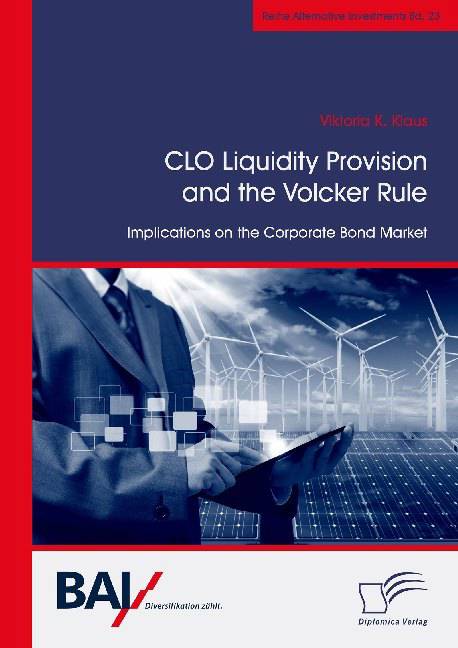
- Afhalen na 1 uur in een winkel met voorraad
- Gratis thuislevering in België vanaf € 30
- Ruim aanbod met 7 miljoen producten
- Afhalen na 1 uur in een winkel met voorraad
- Gratis thuislevering in België vanaf € 30
- Ruim aanbod met 7 miljoen producten
Zoeken
CLO Liquidity Provision and the Volcker Rule
Implications on the Corporate Bond Market
Viktoria K Klaus
€ 29,45
+ 58 punten
Omschrijving
Although it is a highly desirable feature for securities markets in order to thrive, sufficient liquidity is barely recognized when being present. This study analyzes often neglected market liquidity in the corporate bond market after the introduction of comprehensive financial regulation in the USA, foremost associated with the Volcker Rule. Research identifies an increasing share of customer liquidity provision to be a reason for an underestimation of overall transaction costs, as spreads charged by customers are lower compared to market-makers' spreads. With customers providing liquidity where market-makers do not, the overall spread averages decrease. The author applies this research results to collateralized loan obligations (CLOs) and the corporate bond market. This approach is new, since it directly tests the growth of liquidity provision by CLOs as non-Volcker affected vehicles replacing restricted market-makers.
Specificaties
Betrokkenen
- Auteur(s):
- Uitgeverij:
Inhoud
- Aantal bladzijden:
- 102
- Taal:
- Engels
- Reeks:
- Reeksnummer:
- nr. 23
Eigenschappen
- Productcode (EAN):
- 9783961467396
- Verschijningsdatum:
- 9/12/2019
- Uitvoering:
- Paperback
- Formaat:
- Trade paperback (VS)
- Afmetingen:
- 148 mm x 210 mm
- Gewicht:
- 131 g

Alleen bij Standaard Boekhandel
+ 58 punten op je klantenkaart van Standaard Boekhandel
Beoordelingen
We publiceren alleen reviews die voldoen aan de voorwaarden voor reviews. Bekijk onze voorwaarden voor reviews.











